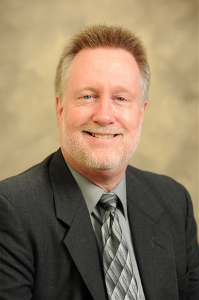
Richard E. Watts, an American Counseling Association Fellow, died on Sept. 2 in Huntsville, Texas. He was 66.
Watts, a diplomat in Adlerian psychology, was considered one of the world’s foremost scholars on the subject and was an expert in the Adlerian, cognitive-behavioral, constructivist, existential-humanistic and systemic-ecological perspectives. He worked closely with the late Jon Carlson, a distinguished professor of Adlerian psychology, to bring Alfred Adler’s work into the mainstream.
Matt Englar-Carlson, a professor of counseling at California State University and the son of Carlson, fondly referred to Watts as “the ultimate Adler nerd.”
Watts devoted his life to education. As a lifelong Texan, he attended a variety of Texas-based institutions. He received an undergraduate degree in music from Sam Houston State University, a master’s in religious education from Southwestern Baptist Theological Seminary and a doctorate in counseling from the University of North Texas.
Watts started his professional career as a counselor educator in 1994 when he became an assistant professor of counseling at Texas A&M University-Commerce. But he spent most of his academic career teaching at his undergraduate alma mater Sam Houston State University, where he was a distinguished professor of counseling. He was also a regents professor at Texas State University.
Among his many accomplishments, Watts authored over 140 publications and presented in more than 200 workshops and programs. He also served in many leadership roles, including as past president of the North American Society for Adlerian Psychology, editor of Counseling and Values and senior associate editor of Journaling of Counseling & Development. He was also a member of the task forces that developed the 2014 ACA Code of Ethics and the ASERVIC Competences for Addressing Spiritual and Religious Issues in Counseling.
Watts often collaborated on scholarship with Paul Peluso, the senior associate dean of the College of Education at Florida Atlantic University. Along with Mindy Parsons, they co-authored the book Changing Aging, Changing Family Therapy: Practicing With 21st Century Realities.
Watts “was truly unforgettable,” Peluso says. “If you had the pleasure to know him, you didn’t forget him anytime soon.”
Watts’ defining traits, according to those who knew him, were his sense of humor and compassion.
“He was a man of many talents,” Englar-Carlson says. “He had all these different kinds of pieces. But he also had this sense of humor that was often kind of dry at times, and he would just say really funny things. … Richard always had a couple of really funny jokes to say that you kind of didn’t expect because [he] always had a way of being kind of serious. So, when he was telling a joke, you didn’t always know it was a joke, but when the punchline hit, he got you.”
“I think Richard came the closest to living out the Adlerian ideal of someone who was deeply connected to his community [and] felt like he belonged,” Peluso notes. “Through his kindness, he sought to elevate other people, connect them to their sense of purpose and make them feel like they belong.”
Throughout his career, Watts taught and mentored many counseling students. Jennifer Nivin Williamson and Daniel Williamson, who are both core faculty at Capella University and co-founders of PAX Consulting and Counseling in Texas, had the pleasure of being Watts’ graduate students when he taught at Baylor University.
“When we think of Richard Watts as our mentor, we recognize that we were ‘standing on the shoulders of giants’ as he helped us to see possibilities in the field that we would not have otherwise imagined,” they say. “He was a remarkable scholar who knew by heart the words of not only our beloved founding father Alfred Adler but also the great philosophers, musicians and theologians who paved various paths of thought.”
“He was generous with his scholarship, always willing to share his work and resources to help other scholars to be able to make contributions to the field,” Jennifer Nivin Williamson and Daniel Williamson note. “The greatest way we can honor him will be to pour into the next generation of counselors and counselor educators. He was a remarkable human being. He and his wife Cheryl were a huge influence on our lives, and we will be eternally grateful.”
Watts also cared deeply about his family. Jerry Juhnke, a professor of counseling at the University of Texas at San Antonio, remembers when he attended a conference with Watts shortly after Watts’ son, Will, was born. They were on escalators going in opposite directions, and Watts waved his arms and shouted for Juhnke to meet him. “When I got to Richard, he excitedly told me about Will’s arrival,” Juhnke recalls. “He was ecstatic. I had never seen Richard so elated. … In nearly 30 years, that was the most enthused I ever experienced Richard. Above all, he dearly loved Cheryl [his wife] and Will. Richard was totally dedicated to them.”
Watts is survived by his wife, Cheryl, and his son, Will.
His body was donated to the University of Texas Health Science Center at Houston’s McGovern Medical School. No funeral service was held. In lieu of flowers, donations can be made to the Richard E. Watts Adlerian Research Award at adler.edu/give-now.
****
Written by Counseling Today Staff Writer Samantha Cooper.
Image courtesy of adlerpedia.org
****
See Counseling Today’s 2016 interview with Watts: “Singalong with Richard Watts: Teaching REBT through song”